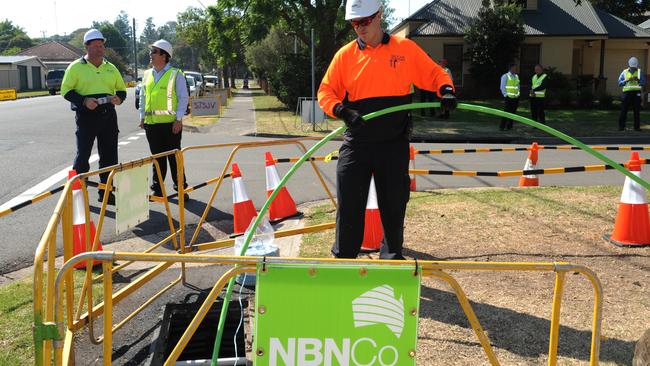ACCC is ‘protecting’ NBN Co on wholesale pricing: TPG Telecom
The competition watchdog has introduced new rules that force NBN rivals to benchmark their prices against the government-owned telco, sparking criticism from TPG.

TPG Telecom has accused the competition watchdog of seeking to protect the market power of the government-owned NBN and “chilling investment” after it launched new price rules for alternative broadband networks.
The Australian Competition and Consumer Commission is forcing TPG and Uniti – the two biggest suppliers of superfast fixed-line broadband – to benchmark their prices against NBN Co’s.
A superfast broadband network or SBAS provides a service similar to the government-owned telco. The ACCC says since 2017 the SBAS market has consolidated as bigger firms acquire smaller rivals, leaving TPG – via its Vision Network – and Uniti as the dominant players, with their networks covering more than one million premises, primarily in apartment buildings and new residential estates.
The ACCC says the new regulation “strikes the right balance” between protecting consumers and ensuring competition among NBN rivals.
But TPG criticised the decision, saying if its prices weren’t competitive against the NBN’s, its customers would leave, and likened the new regulation to protectionism.
“NBN doesn’t need protection. It needs a challenger,” a TPG spokesman said.
“We are disappointed the ACCC is forcing regulation in a market dominated by a government-backed monopoly with benefits of scale and financing that no other player has.
“Binding the market to NBN pricing will inhibit competing wholesalers from innovating at different price points and chill investment.
“It is clear NBN’s focus is on high-speed tiers, and this decision will make it difficult for small providers to compete for customers in this segment. This will ultimately lead to poor outcomes for competition and consumers.”
Last September, TPG’s Vision Network moved to undercut NBN prices, slashing its wholesale costs to retailers as debate over broadband affordability raged. Wholesale pricing for its 100Mbps plans, for example, fell to $50 per month, which is now 10 per cent cheaper than NBN Co.
TPG also upgraded Vision’s fibre to the building technology in metro apartment buildings and in Canberra to support G.fast, which enabled speeds of up to a gigabit.
“We don’t want to be a pale imitation of the NBN,” Vision Network managing director Jonathon Purbrick said at the time. “We want to be a competitive force in wholesale broadband and understand that starts by offering access to superfast speeds at rates that are actually decent.”
But ACCC commissioner Anna Brakey said benchmarking against equivalent NBN access costs will allow retailers to develop consistent product offerings to consumers across all networks.
“We have made this access determination so the one million or so Australians who rely on these networks for internet at their homes or businesses can select from a broader range of retailers and offers that can better meet their needs,” Ms Brakey said.
“The final regulation we’ve settled on contains specific price terms, benchmarked against NBN Co’s pricing, that will enable consumers and businesses to find retail offers that are similar to, or better than, those available on the NBN.”
The changes set maximum wholesale prices and other important terms and conditions for retailers to access the networks. The ACCC said the regulation will apply if the network owners and retailers cannot reach satisfactory commercial agreements.
The new rules will also regulate connection, transfer, and appointment charges for SBAS networks, which Ms Brakey said would make it easier for households to switch retailers and “limit their potential exposure to missed appointment fees or other ad hoc charges”.
She said the changes would put downward pressure on the wholesale cost to access the entry level 25/5 Mbps service and the popular 50/20 Mbps service. Ms Brakey also expected the regulated price terms for the 50/20 Mbps speed tier would “constrain wholesale prices for higher speed tiers”.
“We’re confident that our final decision strikes the right balance between protecting the long-term interests of consumers and allowing the network providers to earn the revenues required to continue to invest and improve their networks over time.”
The changes will come into force on September 1 and apply until March 1, 2027.






To join the conversation, please log in. Don't have an account? Register
Join the conversation, you are commenting as Logout